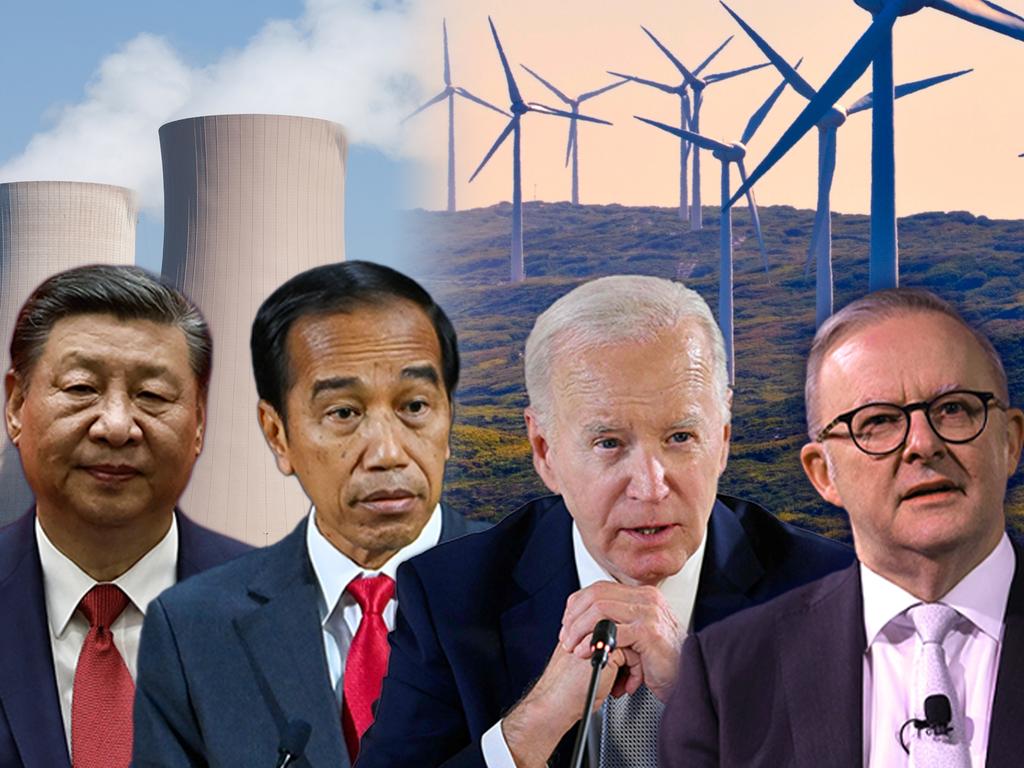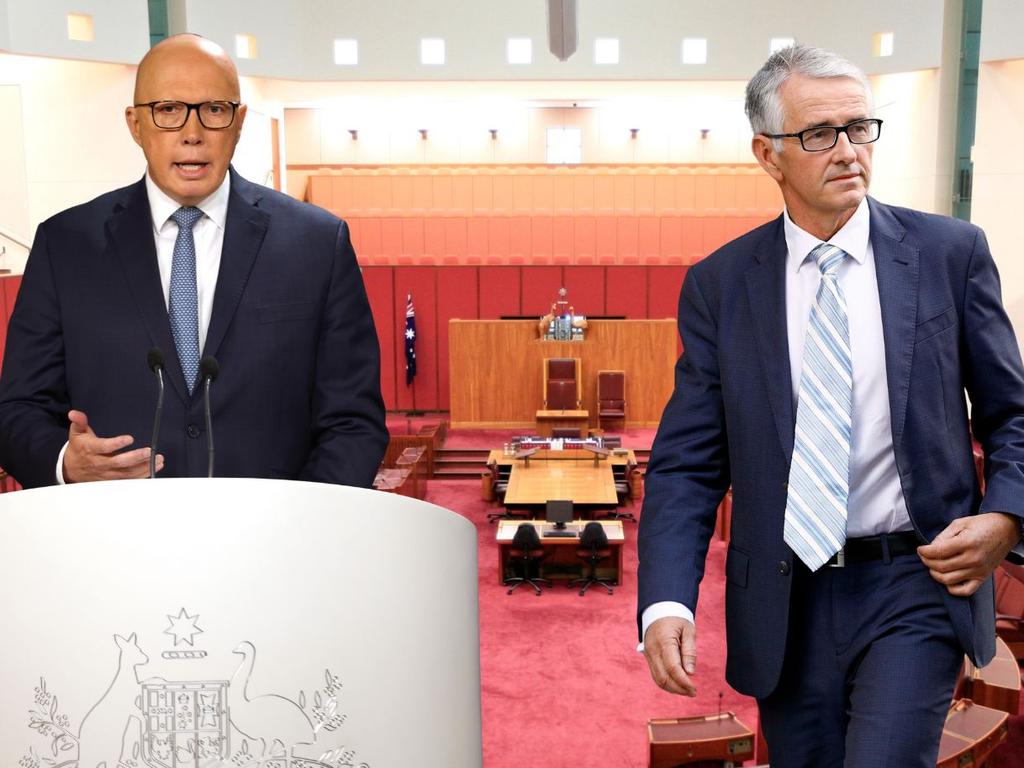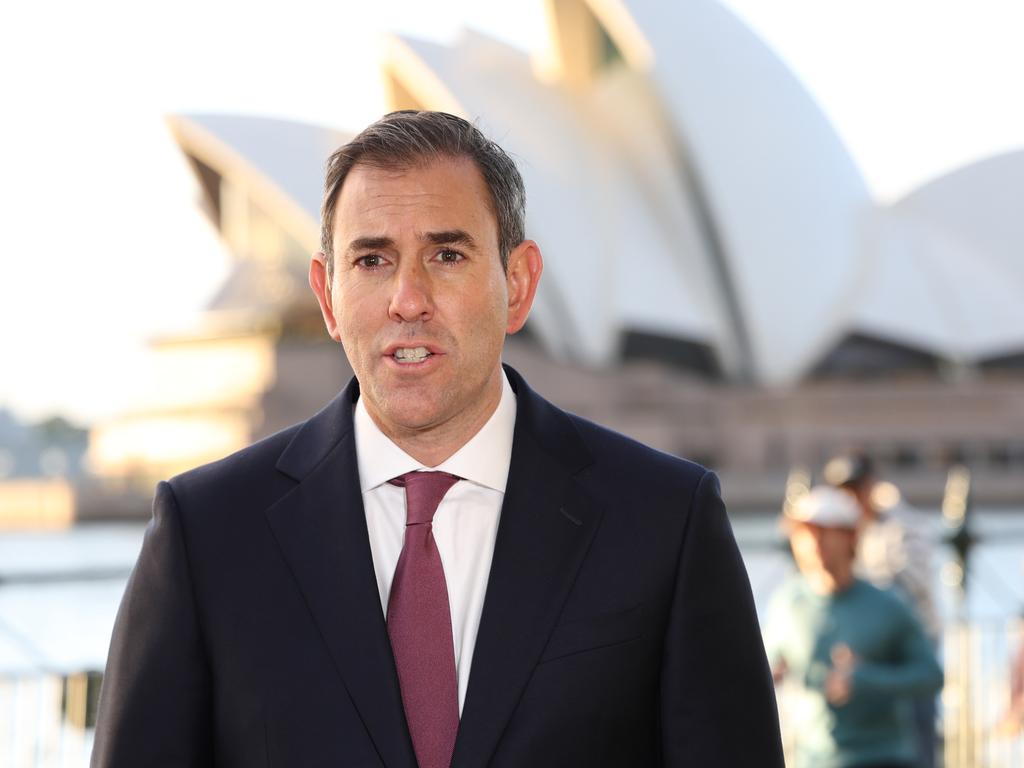Dutton is accepting the inevitable on climate - we can’t make targets


There was clear evidence of it in the recent election for the EU parliament in which large numbers of candidates from parties calling for a pause or reversal of climate-related policies were elected. Cases in point include Germany, France, Spain and Italy. A number of countries had already walked back from some climate measures, including extending the end date for the phase-out of internal combustion engine vehicles. Domestic heating edicts and restrictions on farmers have been highly contentious and concessions have been made.
At a broad level, increasing numbers of people have become fed up with being told how to live their lives – what to drive, what to eat, how to cook, how to heat their homes … the list goes on.
The new EU parliament will likely take a different approach to climate matters compared with the high-water mark of the end of last decade. We have already seen both gas and nuclear deemed environmentally acceptable fuels. Progress on border tariffs to punish countries with weak climate policies will be delayed.

There was always going to come a time when ambitious wishful thinking would clash with the reality of the costs and inconvenience of the march to net zero. We see it in Australia, although climate fatigue is slightly less prevalent at this stage, in part because our largely left-leaning governments continue to beat the drum.
It is in this context that Opposition Leader Peter Dutton has announced that the Coalition will not support the government’s legislated target to reduce emissions by 43 per cent by 2030 (from a base of 2005). At this stage, we have managed to reduce emissions about 29 per cent, although much of this was achieved early on because of the inclusion of land use, land use change and forestry in the calculation. Since 2020, emissions have been essentially flat.
The fact the target is legislated is neither here nor there. If the target is not reached, nothing happens. Most countries that have signed the Paris Agreement have not legislated targets, including big emitters such as the US, China, India and Russia. In any case, the agreement is not legally binding, which is one reason president Barack Obama was able to sign up the US without seeking the approval of congress.
Dutton makes a completely reasonable point that it is unlikely the 43 per cent target can be reached; the 82 per cent renewable energy penetration looks similarly implausible. After all, there are only six years to go. (RE penetration is just above 40 per cent.)
It boils down to arithmetic: Where will the additional tonnes of emissions come from to achieve the target? It’s unlikely to come from RE; assumptions on the take-up of electric vehicles are wide of the mark, and; the impact of the Safeguard Mechanism (a cap-and-trade scheme designed to incentivise the big emitters to reduce their emissions) could easily disappoint.
It’s worth pausing here to outline the main categories of emissions: electricity, stationary energy (including industrial processes), agriculture and transport. Electricity has done a lot of the heavy lifting to reduce emissions but the decisions by state governments to subsidise the continuation of coal-fired plants puts a spanner in the works. (Energy Minister Chris Bowen is probably praying they will close before 2030, although he is highly unlikely to be the responsible minister by then.)
Strong population growth as well as additional demands on the electricity grid – data centres, artificial intelligence – mean additional capacity will be required, upending earlier thinking on this issue. The advocates of “electrify everything” must also anticipate more demand on the grid. The increasing diurnal variations in the price of electricity because of RE puts upward pressure on prices.
The government is now pinning its hopes on the new Capacity Investment Scheme, which is really just a means of further subsidising the rollout of more RE by means of contracts stipulating floor and ceiling prices that guarantee the cashflows of investors.
But even here there are uncertainties, in part because of the cost pressures on RE projects, the difficulties in securing approvals as regional and rural communities arc up about their intrusion, and inadequate transmission capacity. The fact is RE investment has fallen well below the required annual rate; it is very optimistic to think it can be turned around quickly. Talk of flouting normal approval processes, compulsorily acquiring land and deliberately despoiling local environments will only lead to more fierce resistance from our country cousins – and fair enough.
This leaves the other categories to share the burden of cutting emissions. Transport emissions have been heading in entirely the wrong direction, so that is a huge challenge. There may be some upside with the increasing popularity of hybrids, but the impact will be relatively small. There is also the point that the cost of the EV subsidies, both federal and state, are ridiculously high compared to what we should expect the average cost of carbon dioxide abatement to be.
The real fear is that the government will be throw caution to the wind in order achieve the unachievable – or, at least, at an unacceptable cost. The Climate Change Authority is talking about a 75 per cent reduction by 2035; if 43 per cent is not achieved by 2030, that higher figure looks pie in the sky.
It is entirely possible some of our big emitters – aluminium smelters and alumina refineries, in particular – could be forced out of business, with the loss of thousands of well-paid unionised jobs. They are all big users of electricity and emit in their own right. Boyne Island in Gladstone – gone; Tomago in the Hunter Valley – gone; the Alcoa smelters in Western Australia and Portland – gone; the alumina refineries – all gone.
But the demand for aluminium will still be there so the closures will be taken up by other plants elsewhere in the world. Western China, for example, has a large number of these facilities using coal-generated electricity.
In other words, global emissions may go up but Australians can feel happy – or not – that our emissions target is met even if it involves the loss of thousands of manufacturing jobs. By rights, the trade unions should be on to this, but many of their leaders have caught the green disease.
As for the notion that Australia would be kicked out of Paris if Dutton has his way, the reality is that very many countries, including the US, will also miss their targets. The last thing the world’s climate bureaucrats would want is the exit of large numbers of developed countries. After all, they are there to provide the funds to developing countries, which only signed up to get their hands on the loot.






You may not have heard the term climate fatigue, but it’s taking hold overseas as voters express frustration at the personal costs of climate measures imposed by government.